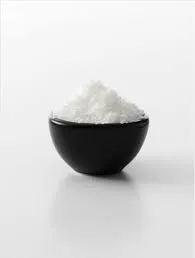- Afrikaans
- Albanian
- Amharic
- Arabic
- Armenian
- Azerbaijani
- Basque
- Belarusian
- Bengali
- Bosnian
- Bulgarian
- Catalan
- Cebuano
- Corsican
- Croatian
- Czech
- Danish
- Dutch
- English
- Esperanto
- Estonian
- Finnish
- French
- Frisian
- Galician
- Georgian
- German
- Greek
- Gujarati
- Haitian Creole
- hausa
- hawaiian
- Hebrew
- Hindi
- Miao
- Hungarian
- Icelandic
- igbo
- Indonesian
- irish
- Italian
- Japanese
- Javanese
- Kannada
- kazakh
- Khmer
- Rwandese
- Korean
- Kurdish
- Kyrgyz
- Lao
- Latin
- Latvian
- Lithuanian
- Luxembourgish
- Macedonian
- Malgashi
- Malay
- Malayalam
- Maltese
- Maori
- Marathi
- Mongolian
- Myanmar
- Nepali
- Norwegian
- Norwegian
- Occitan
- Pashto
- Persian
- Polish
- Portuguese
- Punjabi
- Romanian
- Russian
- Samoan
- Scottish Gaelic
- Serbian
- Sesotho
- Shona
- Sindhi
- Sinhala
- Slovak
- Slovenian
- Somali
- Spanish
- Sundanese
- Swahili
- Swedish
- Tagalog
- Tajik
- Tamil
- Tatar
- Telugu
- Thai
- Turkish
- Turkmen
- Ukrainian
- Urdu
- Uighur
- Uzbek
- Vietnamese
- Welsh
- Bantu
- Yiddish
- Yoruba
- Zulu
Dec . 13, 2024 18:41 Back to list
what medication is used to treat giardia
Giardia is a microscopic parasite that can cause giardiasis, an intestinal infection resulting in symptoms such as diarrhea, abdominal discomfort, bloating, gas, and fatigue. The infection is primarily contracted through consuming contaminated food or water, particularly in areas with poor sanitation. While the symptoms can be uncomfortable and distressing, there are effective medications available to treat giardiasis.
The first-line treatment for giardiasis is typically metronidazole, an antibiotic that belongs to a class of medications known as nitroimidazoles. Metronidazole is effective in killing the Giardia lamblia parasites that contribute to the infection. Treatment usually lasts for five to seven days, and the dosing may vary based on the patient’s age and weight. Common side effects of metronidazole can include nausea, a metallic taste in the mouth, and, in some patients, a disulfiram-like reaction with alcohol. Due to these side effects, patients are often advised to avoid alcohol during and for at least 48 hours after completing the medication.
Another option for treating giardiasis is tinidazole, a medication that is similar in action to metronidazole. Tinidazole is often favored for its once-daily dosing regimen and is generally better tolerated. The treatment duration is also shorter, typically requiring only a single dose or a course lasting for two days, making it a convenient option for patients. Tinidazole acts by disrupting the DNA of the parasite, leading to its death, and it tends to have fewer side effects compared to metronidazole.
In cases where patients are resistant to metronidazole or tinidazole, or if they experience recurrent infections, nitazoxanide may be considered. This antiparasitic medication is effective against a wide range of protozoa, including Giardia. Nitazoxanide is typically given over three days and is known for its palatable taste, which can be advantageous when treating children. Side effects are usually mild and may include abdominal pain and nausea.
what medication is used to treat giardia

For individuals with a compromised immune system, such as those with HIV/AIDS or other conditions that weaken immunity, treatment for giardiasis may be more complex. In such cases, healthcare providers might opt for prolonged courses of the aforementioned medications or consider alternative treatments, as the risk of severe illness can be higher in immunocompromised patients.
In addition to medication, understanding the transmission routes of Giardia can help prevent further infections
. Proper sanitation practices, such as washing hands frequently, ensuring food is cooked thoroughly, and drinking clean, treated water, are crucial in reducing the risk of giardiasis.As with any medical condition, it is essential for individuals experiencing symptoms of giardiasis to consult with a healthcare professional for an accurate diagnosis and appropriate treatment plan. Diagnostic tests, such as stool examinations, can confirm the presence of Giardia, allowing for targeted treatment. Following the prescribed medication regimen and implementing preventive measures can significantly improve outcomes and contribute to the overall health and well-being of those affected by this parasitic infection.
In conclusion, giardiasis is a treatable condition with effective medications like metronidazole, tinidazole, and nitazoxanide. Awareness of symptoms, alongside good hygiene and sanitation practices, is key to prevention and management of the infection. If you suspect you have giardiasis, seeking prompt medical treatment can help alleviate your symptoms and restore your health.
-
Guide to Oxytetracycline Injection
NewsMar.27,2025
-
Guide to Colistin Sulphate
NewsMar.27,2025
-
Gentamicin Sulfate: Uses, Price, And Key Information
NewsMar.27,2025
-
Enrofloxacin Injection: Uses, Price, And Supplier Information
NewsMar.27,2025
-
Dexamethasone Sodium Phosphate Injection: Uses, Price, And Key Information
NewsMar.27,2025
-
Albendazole Tablet: Uses, Dosage, Cost, And Key Information
NewsMar.27,2025













